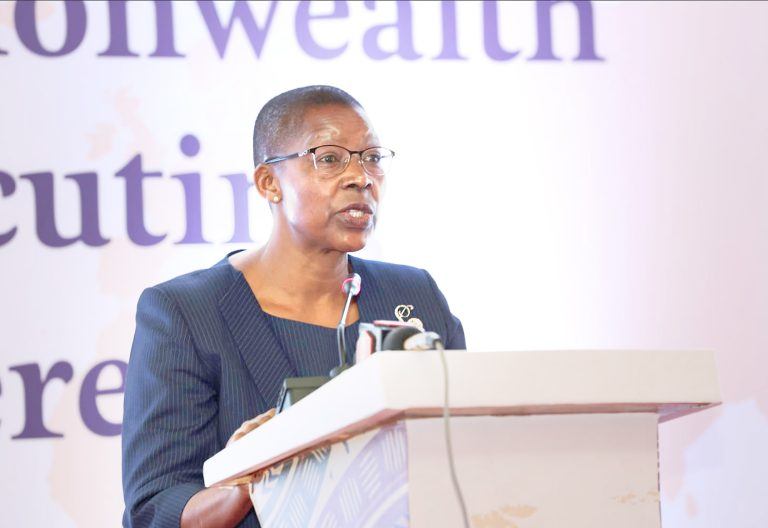Attorney-General warns of technology facilitating crime, terror

Attorney General Dorcas Oduor has raised the alarm over the growing use of technology in facilitating financial crimes and terrorism, warning that criminals are increasingly outpacing the law.
Speaking during the 23rd Commonwealth Heads of Prosecuting Agencies Conference in Mombasa, Oduor called attention to the mounting threat posed by illicit financial flows—an issue she said is draining the African continent of an estimated Ksh11.46 trillion annually.
The figure, she noted, is equivalent to 3.7% of Africa’s total GDP and nearly matches the combined amount the continent receives each year in foreign direct investment and official development assistance—Ksh6.98 trillion and Ksh6.21 trillion, respectively.
“The financial crimes landscape is evolving at an alarming rate,” Oduor said.
“With the rise of technology, terrorists and money launderers are not being left behind. As we celebrate technological advancement, we must not turn a blind eye to its darker side.”
She pointed to artificial intelligence as a transformative force now being exploited to escalate the volume and sophistication of fraud, scams, and money laundering—many of which are now executed via social media platforms, deceiving unsuspecting victims with increasing ease.
In light of the rapidly changing landscape, the AG emphasised the urgent need for law enforcement and regulatory bodies to invest in cutting-edge technology that can keep pace with increasingly tech-savvy criminals.
“Terrorists have already shifted focus to cyberterrorism,” she noted.
“Technology brings high risks of terrorism financing and money laundering. We must evolve alongside it, if not ahead of it.”
Oduor identified five major crimes that pose the greatest risk in facilitating money laundering: fraud, corruption, smuggling, drug trafficking, and transnational organised crime.
These, she said, are systemic problems that cut across every sector of society.
“Such crimes fuel and sustain other dangerous activities,” she said.
“We all witness the far-reaching damage they cause—not just to individuals, but to entire societies.”
To counter the threats, she called for closer collaboration between legal frameworks and financial institutions, noting that financial crimes extend far beyond the financial sector.
“This calls for a whole-of-nation approach,” she said.
“Illicit financial flows transcend borders, crippling governments’ ability to raise funds for sustainable development. Globalisation has made it far easier for criminals to move money than for nations to move laws.”
Drawing from her experience in the East African Community’s Council of Ministers, Oduor illustrated how goods, people, and finances can move easily across borders, but that regional law enforcement remains painfully slow and fragmented.
“You’ll hear endless debates about laws and enforcement that drag on for years. Meanwhile, criminals exploit this delay. While crime is agile and borderless, the law remains bound by bureaucracy, legislation, and diplomacy,” she explained.
She also highlighted the glaring lack of a universally accepted definition for “illicit financial flows,” warning that this ambiguity leaves room for manipulation and inaction-much like the long-standing challenges surrounding the global definition of terrorism.
Despite this, she stressed that the international community cannot afford to wait for consensus: “Even as we push for a standard definition, we must forge ahead with a unified, cross-border approach to tackling these crimes.”












